Are you traveling to Israel soon? If so, read on for our top tips on traveling to Israel along with the best things to do in Israel included too!
Israel is a beautiful, complicated, full of history country. Only the size of New Jersey, this country is bursting with amazing places to visit for both the religious and non religious. However planning a trip to Israel brings a lot of unknowns for first time visitors. After spending almost a month in the country this year with my son, I want to share this detailed travel guide with you including all that I wish I had known before visiting Israel.
Disclosure: Some of the links in this post are affiliate links, meaning at no additional cost to you, I will earn a commission if you click through and make a purchase.
Jump to a Heading Below
10 MUST READ Tips for Traveling to Israel
 Israel is Expensive
Israel is Expensive
The number one Israel travel tip everyone should know while planning their visit is that Israel is expensive. I know that everyone tells you this when you travel to certain places, but really, everything in Israel is expensive. From buying hummus and bread rolls at the corner market to eating out and drinking, expect to pay a premium for most things.
Even staying with friends, we spent a lot more than we had planned during our trip to the country. To help keep budgets in check, plan on doing a lot of things that are free with minimal paid tours as these are often quite expensive. If you book an Airbnb, plan to cook some meals at home to reduce costs as well. If you rent a car, budget for approximately $7 a gallon for gas. Eating out for simple cafe meals will run you at a minimum $20 per person.
Driving is Easy, But Read the Fine Print for Renting a Car
Driving in Israel is super easy if you plan to be outside of the main city centers and plan to do a lot of stuff in a short amount of time. A car rental can be a time and money saver, as long as you read the fine print. Maybe you found an awesome deal online for your rental car. Well, don’t get too excited as this cheap price is often MUCH higher once you reach the actual rental car office.
When we we rented our car, there were at least 4 families screaming at the attendants for outrageous charges they had not been informed about. We were also in that group – not screaming, but definitely upset about the $200 fee for renting the car for less than 72 hours. This is one of many fees that tourists are hit with when renting a car in Israel online. Another is a mandatory insurance fee (not CDW that is often covered by credit cards) and taxes that were not listed online.
If you are unsure of exactly how much your rental will cost, call/email the company at their .il website before booking. I would also suggest you avoid 3rd party rental companies as they may offer cheap prices online, but it is more difficult to get refunds when disaster strikes and to get all the fine print details on what is and is not included in your rental fee.
Lastly, if you are dropping your car off at a different location than your pickup, make sure to take LOTS of photos of the car when you rent it as well as when you drop it off to avoid any unnecessary discussions about damage.
Take Advantage of Free Walking Tours
As mentioned above, Israel is indeed expensive, but there are an abundance of free tours offered all over the country that helps keep a budget in check. These tours are free or on a tip only basis. These are perfect for those traveling on a budget looking to get more insight into the country. I cannot recommend free walking city tours enough as they allow you as a visitor to learn so much about the country while cruising around on foot. For families these are great because you can often go at your own pace and venture off on your own if the little ones aren’t jiving with the tour. Just make sure to pay your tip before you leave!
If you take anything away from this post, it should be our number one Israel travel tip of taking free walking tours whenever you can! We took amazing tours with Sandeman’s Walking Tours in Tel Aviv, Jaffa and in Jerusalem. We also loved the Carmel Market tasting tour in Tel Aviv. This tour was free at the time of our visit, but looks to be a fee based tour now. However, I would highly recommend it as we learned so much and sampled some really amazing foods.
Understand What the Sabbath Means
 For many non-religious people, Shabbat or the sabbath probably doesn’t mean much. In Israel, Sabbath is a weekly holy day, also known as a Jewish day of rest, and as such most of life stops throughout the country. From sundown Friday evening to sundown Saturday evening (often going until Sunday morning) there is no public transportation throughout the country. This is extremely important to know if you are arriving or departing on a Friday or Saturday. My recommendation is to plan around this day when booking travel into or out of the country.
For many non-religious people, Shabbat or the sabbath probably doesn’t mean much. In Israel, Sabbath is a weekly holy day, also known as a Jewish day of rest, and as such most of life stops throughout the country. From sundown Friday evening to sundown Saturday evening (often going until Sunday morning) there is no public transportation throughout the country. This is extremely important to know if you are arriving or departing on a Friday or Saturday. My recommendation is to plan around this day when booking travel into or out of the country.
Also note that outside of Tel Aviv, especially in more religious places like Jerusalem, almost everything is closed until sundown on Saturday evening. This means you must stock up on food and drinks before Friday afternoon. During our visit to Jerusalem, we didn’t think it would be as hard core as it was. Literally nothing was open and we were starving by sundown which was much later than expected. If you are in Israel on a Sabbath, plan to visit Arab neighborhoods or take day trips to areas where you can hike, float in the dead sea or relax at the beach.
Tourists Can Go to Palestinian Territories
As a tourist (unless you have Israeli citizenship) you are permitted to visit the Palestinian Territories on your own or with a tour. Note, if you have a rental car, your car is not allowed to go across to Palestine. You will need to go by bus or tour group. During our visit, we opted for an all day tour (on Shabbat) with Abraham Tours. I am not typically a fan of big bus tours, however we thoroughly enjoyed our day learning more about the Palestinians and their plight, while also visiting some very famous Christian sites throughout the region. This is an easy way to visit as much as possible on the West Bank without your own car. For those with more time, I would highly recommend staying a few nights in Bethlehem to explore more at your leisure.
NOTE: There is so much more to Israel than just the political situation you have heard about on the news. One of the most important Israel travel tips I have is to remember this and visit the country with an open mind.
Expect to See Guns and Soldiers Everywhere
Military presence is just a way of life in Israel. Expect to see soldiers in plain clothes and in uniform, always with their guns. All 19-21 year olds in the country are required to serve in the army. When a person is in the military they are not allowed to leave their weapons anywhere so even when they are off duty they will have them strapped to their body. It can be a bit unnerving to have breakfast with a machine gun pointed at you, but you do get used it amazingly.
Other than the military, you should not see or experience other guns as there is not a big gun culture in the country. It is amazing to look around and realize though that almost every person you see has learned how to use a gun. This Israel travel tip is not easy to prepare for, other than just to just know in advance that it will be all over.
The Water is Safe to Drink
One of the best tips for traveling to Israel to know is that the water is safe to drink! Just like in most developed countries, the tap water is safe to drink throughout Israel. That said, we have heard of people getting funny tummies while in the country, so to be on the ultra safe side, we used our awesome water purification water bottle when filling up our hydroflasks for the day or making ice in our airbnb.
Ironically, even though we were super cautious with tap water, we did eat frozen slushies every single day all over the country to our delight. We did not personally have any issues doing this, but I cannot guarantee you will be the same! However in general ice and water in Israel is safe to consume.
Airport / Border Security Can Be Intense
Another top tip for traveling to Israel is to prepare for the security. If you have heard anything about traveling to Israel, it probably has something to do with how intense the security in the country can be. As an American traveling to Israel, the security at the Egypt border control was reasonable. It was not much more than I have received in other countries (Ireland comes to mind as being quite intense in this regard), but it was definitely more than I get in the US.
Crossing overland from Egypt, I was quizzed in depth about who I planned to see, where I meet my friends, what I was hoped to do, etc. Often times the security officer was not satisfied with a simple answer and wanted more in depth responses. I hadn’t done much preparation for our trip, so I was not as prepared for this as I would have liked.
For others we were traveling with, their security screening was much longer including asking about grandparents and heritage. Overall, my biggest Israel travel tip is to arrive to the security booth with patience, honesty and detailed information about what your plans are while in the country . If you do this, you will be fine.
Israel Does Not Stamp Passports
There is little to worry about these days in regards to your passport showing you have been to Israel. Yes, there are still plenty of Arab countries who will not admit you if you have evidence of visiting Israel, but for Israel’s part they have cut out the passport stamps.
Instead, you will be given a small piece of paper with your details that you will need to keep with you until you exit the country. I was not ever asked for this paper, but you could potentially need it when crossing the border into the West Bank.
If you fly into and out of Israel your passport will be clear for neighboring countries who might not want to see an Israel visit. However, please note that if you enter by land or go to Jordan by land your passport will show that you entered or left these neighboring countries even without an actual Israel stamp. To keep your passport clear, the best way to enter and exit Israel is by plane, and only plane at Ben Gurion International Airport.
The Food in Israel is Amazing & Varied
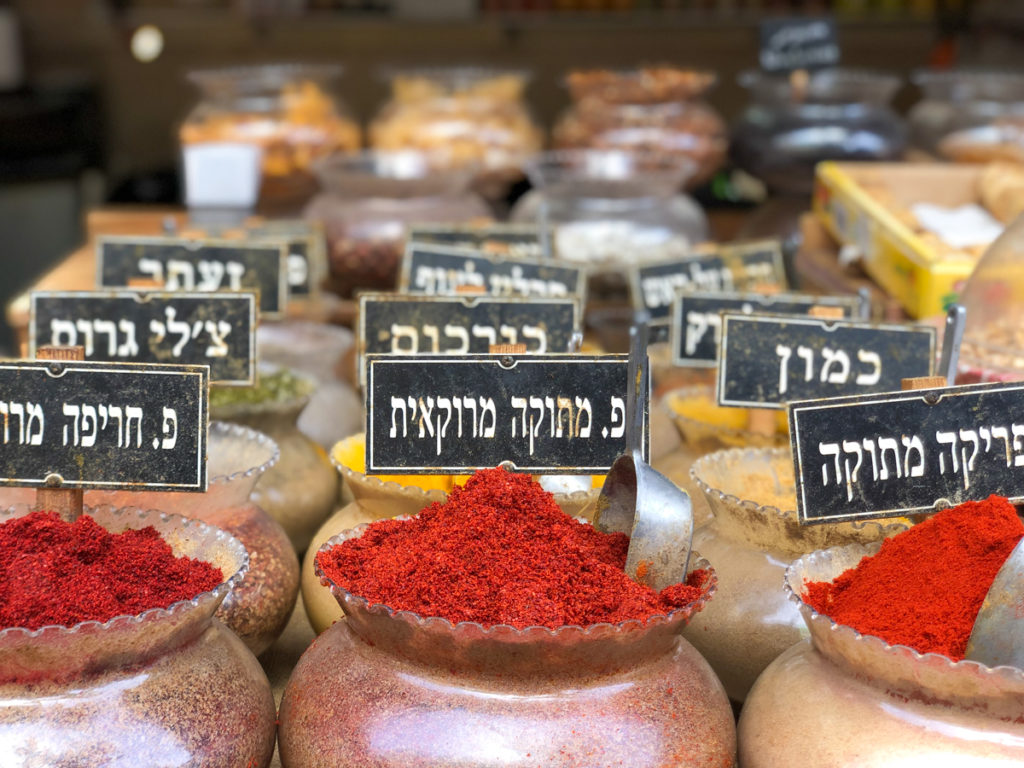 Are you expecting to eat bagels and cream cheese every day while in Israel? If so, think again. Honestly during our entire visit, we didn’t eat one bagel (even though we wanted one!) as they are not as common as you might think. However, we did eat a ton of different food from a variety of different cultures. Israel is a melting pot country with people from all over the world including Russia, Europe, the middle east and more. This means there are a ton of amazing food options for you to try during your visit.
Are you expecting to eat bagels and cream cheese every day while in Israel? If so, think again. Honestly during our entire visit, we didn’t eat one bagel (even though we wanted one!) as they are not as common as you might think. However, we did eat a ton of different food from a variety of different cultures. Israel is a melting pot country with people from all over the world including Russia, Europe, the middle east and more. This means there are a ton of amazing food options for you to try during your visit.
We highly recommend doing at least one food tour during your stay. Otherwise – you must try all the hummus you can as it is different at every single shop! Two, you must try the different coffee offered around the country, especially in some of the old shops near Carmel Market in Tel Aviv. Three, eat falafel as much as you can. Another wonderful food that is a bit different every place you turn. Lastly, the breads are out of this world. From fluffy pita (yes it’s super fluffy in Israel) to a variety of different breads like ash tanur to challah, there is so much to sample. Do it!
Is Israel Safe?
This is a tough question and depends on who you ask and when you ask it, but in general, yes Israel is safe. During our visit to the country we felt safe the entire time even though we bomb sirens had gone off in Tel Aviv the day before we arrived and it was in the middle of a contentious election. According to locals in Tel Aviv the bomb sirens go off somewhat regularly and it something that they mostly ignore. As a tourist with years of media news guiding my knowledge, I can say it would be a little nerve wracking to experience this on my own.
I will admit that initially I was a bit nervous riding public transportation only because I had read for years about random attacks on the bus or trains. Once we arrived however, I felt at peace and comfortable riding the buses across the country as well as within the cities. You can never say never, but for the most part the country is free of daily terrorist attacks in the areas that tourist visit. There are military and police around every corner and almost on every bus providing a little sense of security.
In addition to Israel, the West Bank area is also safe and is really working hard to bring up their safety image to lure more tourists to the famous Christian sites that live on their side of the border. I highly recommend visiting, contributing to the local economy and doing your part to learn a bit about what goes on on both sides of the border.
When is the Best Time to Visit Israel
Like other countries in the Mediterranean region, Israel has hot summers, a bit of cold and rain in the winter, and moderate temperatures on either side. However to ensure that you have the best trip possible, I would recommend that you avoid the Jewish high holidays as many things will be closed or quite busy.
I visited during the Passover /Easter season and found it exciting to see all the preparations being made as well as the different events happening. This is a very busy time in the country for both Jewish and Christians alike. Many schools are off and there is a lot of internal travel visiting family and friends.
Weather wise, the best time to visit would be in the spring and fall where you will get warm temperatures on the coast and cooler temperatures inland. During our visit in March/April, we did wear long sleeves in Jerusalem but it was warm enough to swim at the Dead Sea easily. The air temperature was warm at the Red Sea, however the water there is COLD year round. Whatever time you choose to visit, will offer great weather somewhere in the country!
What to Pack for a Trip to Israel
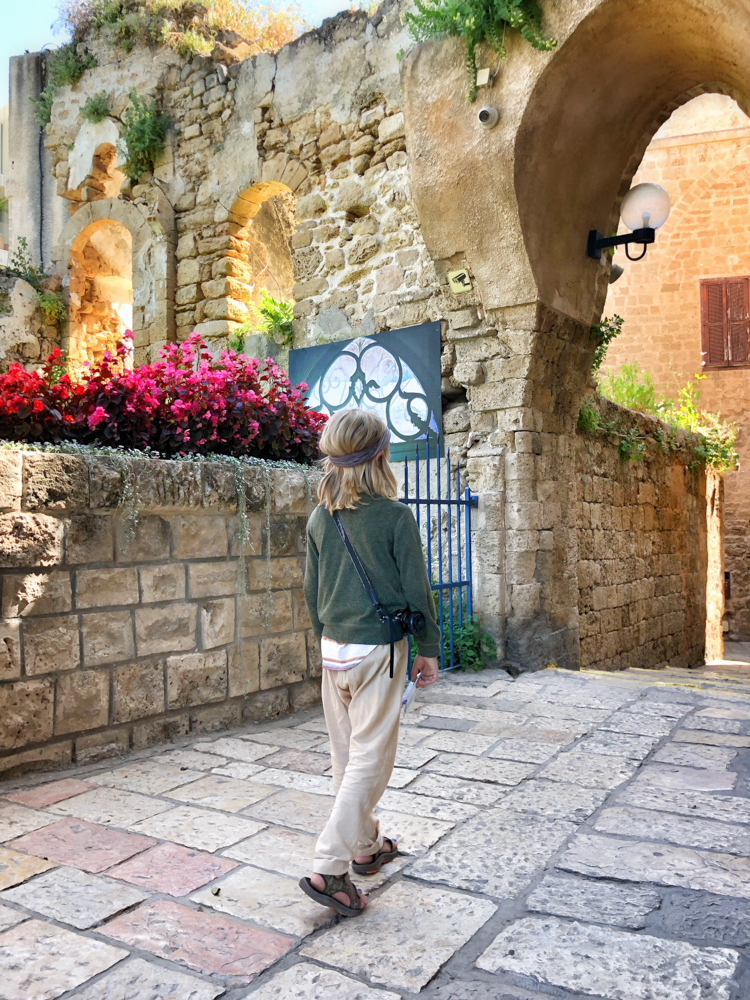 Even though Israel is not a large country, the weather can change quite drastically from one region to another. There are several microclimates that need to be considered when visiting Israel. In addition to the actual climate, the religious nature of the country also needs to be considered when packing for Israel. One of my best tips for traveling to Israel is to remember that regardless of the time of year, modest clothing and layers are always welcome.
Even though Israel is not a large country, the weather can change quite drastically from one region to another. There are several microclimates that need to be considered when visiting Israel. In addition to the actual climate, the religious nature of the country also needs to be considered when packing for Israel. One of my best tips for traveling to Israel is to remember that regardless of the time of year, modest clothing and layers are always welcome.
For Women
Something to cover your head and shoulders as well as skirts, dresses, or pants that go below the knees are a must. There are some places that are more specific than others and require women to have skirts or a dress that go to the ankles.
For Men
Men are in need of bottoms that cover knees and shirts that cover the shoulders – tank tops are not allowed in many places.
No worries – for those who forget, or don’t have something available, most of the highly visited places have garments available to borrow for free.
A quick reference list of what we recommend is below. For a more detailed list of what we take on most all of our trips, check out our this packing list for international travel.
- Socks, underwear and undergarments as needed
- 3-5 tops (tees/light long sleeve/tank tops – be mindful of sleeve options)
- 1-2 sets of clothes suitable for walking all day
- 3-4 pair of bottoms (shorts/capris/skirts/dresses/jeans)
- 2 pair of shoes (1 pair sandals, 1 pair comfortable walking shoes)
- Layering options (1 cardigan/sweatshirt/light jacket)
- Swimsuit & cover up
To your clothing list add the following, year round:
- Sunscreen, sunscreen, sunscreen!
- Hat
- Sunglasses
- Sarong or scarf
- Rain jacket, poncho, or travel size umbrella
- Water bottle
- Daypack or extra tote
- Always pack travel insurance!
Don’t forget your cameras, phones and chargers too!
Top 15 Things To Do in Israel
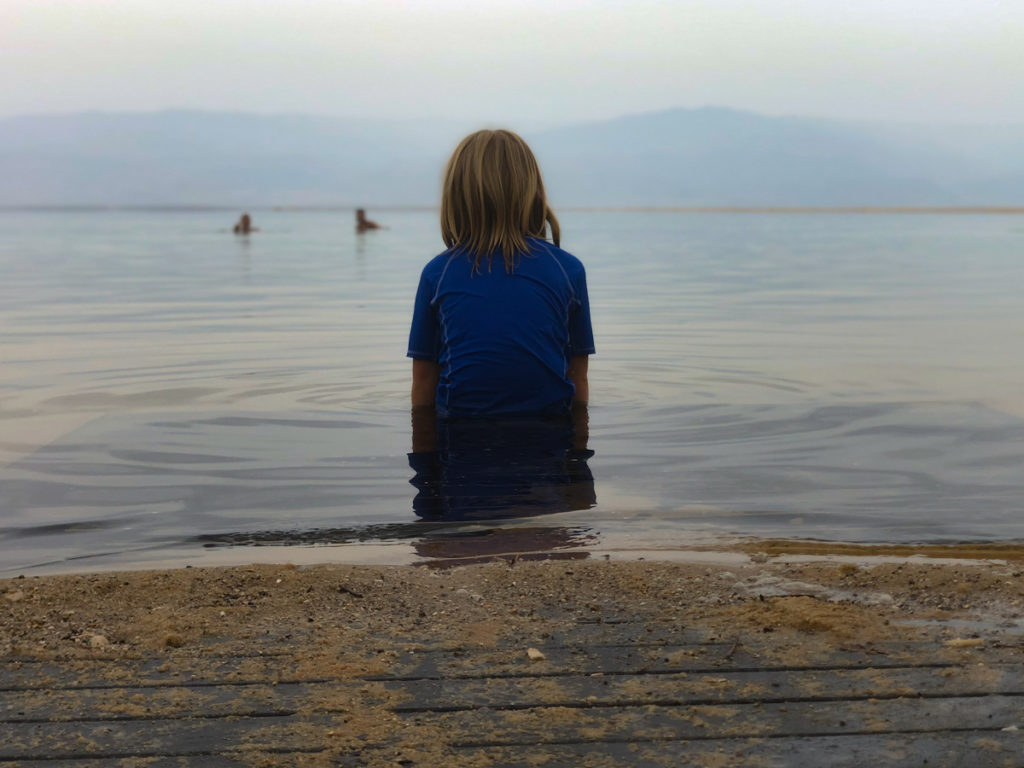 Israel is not a large country, but it packs in a ton, from snorkeling at the Red Sea, floating in the Dead Sea to hiking and exploring all the religious sites dotting the country. From the sandy scenes of the Negev Desert to the lush winery area of Golan Heights, there is much to see. If you have time, try to see as many different areas as you can. Below are our top recommendations for not to miss highlights in Israel.
Israel is not a large country, but it packs in a ton, from snorkeling at the Red Sea, floating in the Dead Sea to hiking and exploring all the religious sites dotting the country. From the sandy scenes of the Negev Desert to the lush winery area of Golan Heights, there is much to see. If you have time, try to see as many different areas as you can. Below are our top recommendations for not to miss highlights in Israel.
1. Float in the Dead Sea
My number one recommendation for people going to Israel is to make their way to the Dead Sea for a float! This is one of the coolest experiences you will ever have. Even if you plan to visit Jordan next door, visiting the Dead Sea is much nicer and easier here in Israel. Bring enough money for the meters as you will surely stay a lot longer than you think you will. This can be done easily as a day trip, just get up early to give yourself as much time as possible.
2. Play Matkot on the Beach in Tel Aviv
The beach in Tel Aviv is beautiful and filled with beautiful people especially on the weekends. Israelis manage to fill in every small gap of space on the beach on a warm day, but you will still see plenty of people playing the local beach sport matkot. Think paddle boards with a ping pong type ball. The knock knock knock sound could drive you crazy if you are trying to relax on the beach, so just buy a set and join in!
3. Eat Your Way Through Carmel Market
One of my favorite things from our time in Israel was going on a food tour through Carmel Market. We sampled some of the most delicious foods from Russian breads to strong traditional coffee to the best hummus in the city. Even if you don’t have time to do a tour, make your way to this fantastic market and check out some of the cool stalls along the way. Buy some candy, some breads and search out the best hummus you can find.
4. Explore Jaffa
Another amazing place to spend some time in Tel Aviv is in Jaffa. Chock-full of authentic, delicious restaurants, local designer boutiques and a picturesque flea market, we found ourselves here several times in our Tel Aviv visit. I also happened to spend quite a bit of Israeli shekel here on clothes and Israeli made shoes! Get ready to spend some cash if you spend much time here as it just lures you in.
According to my local friends, the best hummus in town is to be found here at the Old Man and the Sea Restaurant. My taste buds differ, but it’s still a great place to spend a lolling lunch stuffing your face full of amazing eats. All of Jaffa is also a happening place on Saturday night if you are looking for something to do.
5. Visit the Western Wall
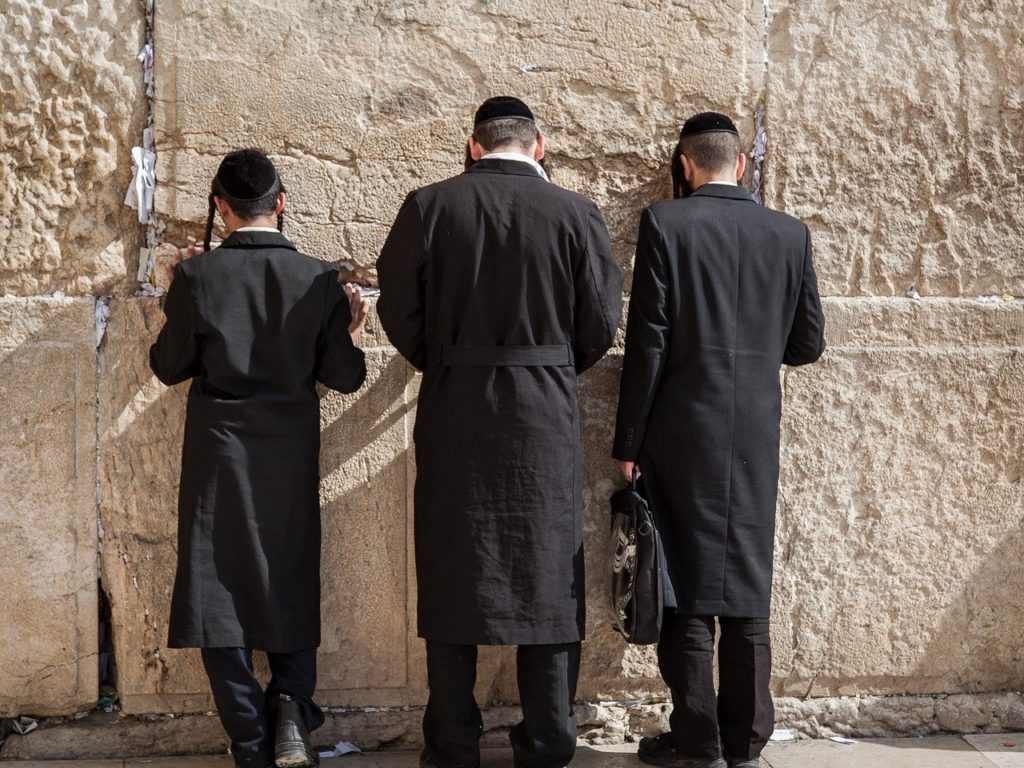 No visit to the Holy Land is complete without a visit to the famous Western Wall, sometimes also called the Wailing Wall. Again, this is a sight that will lure you back over and over again. Sit back and watch the different sects come forward to make their prayers or maybe witness a bar mitzvah where the women and men are separated by the wall, but the party continues regardless. A must visit. Come with your wishes written out on small paper to stick into the wall along with the throngs of other visitors.
No visit to the Holy Land is complete without a visit to the famous Western Wall, sometimes also called the Wailing Wall. Again, this is a sight that will lure you back over and over again. Sit back and watch the different sects come forward to make their prayers or maybe witness a bar mitzvah where the women and men are separated by the wall, but the party continues regardless. A must visit. Come with your wishes written out on small paper to stick into the wall along with the throngs of other visitors.
6. Walk a Holy Path on Palm Sunday
If you happen to be in Jerusalem on Palm Sunday, it is a sight to see. You can join the throngs of visitors from all over the world as they embark on following Jesus’ footsteps from Mount of Olives above the Old City and down into the town. This is a massive event that is amazing to be part of. Even if you aren’t in town during this holiday, you can walk this same path any day as you want. To do this on your own, walk down the Mount of Olives to Gethsemane and then proceeding to the Lion’s Gate entrance of the Old City. From here you will walk the Via Dolorosa, ending at the Church of the Holy Sepulchre.
7. Learn About the Kibbutz
A kibbutz is a collective community originally created around agriculture. Today these are much more planned communities that are still quite interesting to see and experience. Many of these are privatized now, allowing visitors to learn more about the system. Some of the more popular ones to visit include: Kibbutz Ein Gev, located on the eastern shores of the Sea of Galilee, Kibbutz Gesher situated along the banks of the Jordan River and Kibbutz Degania (Aleph) also on the Jordan River.
8. Snorkel at the Red Sea
Most visitors don’t make it all the way down to the tip of Israel to the Red Sea, but if you have time in your itinerary I highly recommend it. This is some of the best snorkeling I have ever done. The corals are colorful, alive and full of fish. The water is cold year round, but it is worth it to see such a beautiful world under water.
9. Take a Day Trip to the West Bank
If you live in the West you have undoubtedly heard only negative things about the West Bank. Being the adventurer that I am I wanted to see it for myself instead of only listening to the media. After visiting just for a day, I wish I had more time to spend exploring the other side of the wall. Yes, there is an actual wall which is heartbreaking and beautiful all at once. Here in the West Bank you will find your way to many of the most famous Christian sights as well as get an up close view on the Palestinian world. We took a tour with Abraham Tours, but you can also go via bus on your own.
10. Hike in the Desert Oasis Ein Gedi
 During our visit we didn’t get as much nature time as we had hoped, so a visit to the desert oasis Ein Gedi was a welcome day out. After spending the night in the local hostel filled with traveling Israeli families, we headed out to explore a beautiful hike along a stream and even through caves ending at a waterfall. This is a busy trail, even with a few tour buses loading in, so we suggest going early or later in the day to get the most of it. A beautiful place to explore on your way to/from the Dead Sea.
During our visit we didn’t get as much nature time as we had hoped, so a visit to the desert oasis Ein Gedi was a welcome day out. After spending the night in the local hostel filled with traveling Israeli families, we headed out to explore a beautiful hike along a stream and even through caves ending at a waterfall. This is a busy trail, even with a few tour buses loading in, so we suggest going early or later in the day to get the most of it. A beautiful place to explore on your way to/from the Dead Sea.
11. Visit Temple Mount /Dome of the Rock
Perhaps the most controversial spots in all of Israel, Temple Mount/Dome of the Rock is a must visit on any Israel itinerary. This extraordinary mosque is beautiful for his history and it’s look. You cannot wear tight jeans or leggings, or show your ankles, but a free skirt is provided to wear over the top of your clothes if needed. Spend time exploring the grounds in the early morning before it becomes too hot. Entry times are limited so check in advance
 12. Bath in the Jordan River
12. Bath in the Jordan River
If you are Christian, a visit to the Jordan River where Jesus was baptised is probably on your to do list. Today you will see visitors from all over the world taking the plunge in this murky water just as Jesus did way back when. You can bring your own bottle or buy an empty bottle inside the small shop to take some home as well. This is a popular stop on most bus tours, so expect crowds!
13. Learn to Make Hummus
If you are as in love with the Israeli hummus as we are, then consider taking a class to make it yourself! Abraham Hostel often offers classes on how to make hummus, but there are other options throughout the country as well. I wish we would have taken this class as we just cannot recreate the deliciousness we tasted there back home!
14. Go on a Scavenger Hunt in a Shuk
Israel ScaVentures offers unique, fun and challenging games around Jerusalem that gets you much better acquainted with the city than you ever thought possible! In a Shuk Dash, you will explore the diverse people and offerings of Mahane Yehuda market by selling fruit, posing with fish and a variety of other fun tasks. If you aren’t in town during an organized Shuk Dash, you can also do your own private adventure as well.
15. Head to Haifa for the Baha’i Gardens
You can’t spend all your time in the cities! Head up north to Haifa to visit the beautiful Baha’i Gardens. After visiting the Baha’i temple in India, we had this high on our to do list. It did not disappoint. Besides the gardens themselves, it’s a beautiful change of scenery that is well worth the drive.
Don’t Forget Your Travel Insurance
Israel is an amazing country for travelers, but it is also expensive, therefore you should make sure to have international insurance in place before you go. This is the one non-negotiable item I make sure to book for any trip abroad. For me personally, I have a year long plan with Allianz. However, they also have 1 trip plans in a wide range of affordable options including coverage for both travel hiccups and medical emergencies. Check out their plans and rates here.
For a bit more of a comprehensive insurance with higher allowances for things like dental, repatriation of remains, etc, I also recommend World Nomads. World Nomads does tend to be a bit more expensive, but their coverage is much more comprehensive. Check their rates here. And as always, read the fine print to know exactly what is and is not covered!
My choice in insurance often is dependent on the location I am traveling too (the political stability, chance for great misfortune, etc) or if I am taking a tour that requires specific coverage.
I have used both companies myself as they are both known for being responsive to claims and are reputable.
Is there anything that we missed here? If so share it below!
If You Enjoyed This Post, Sign Up To Receive Posts By Email or…

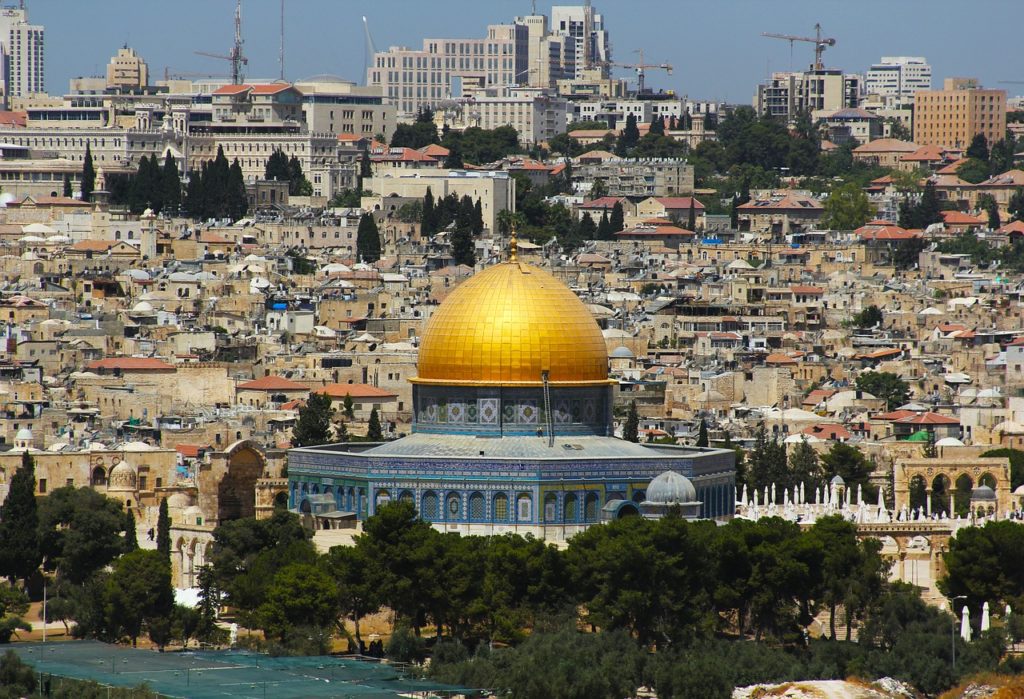
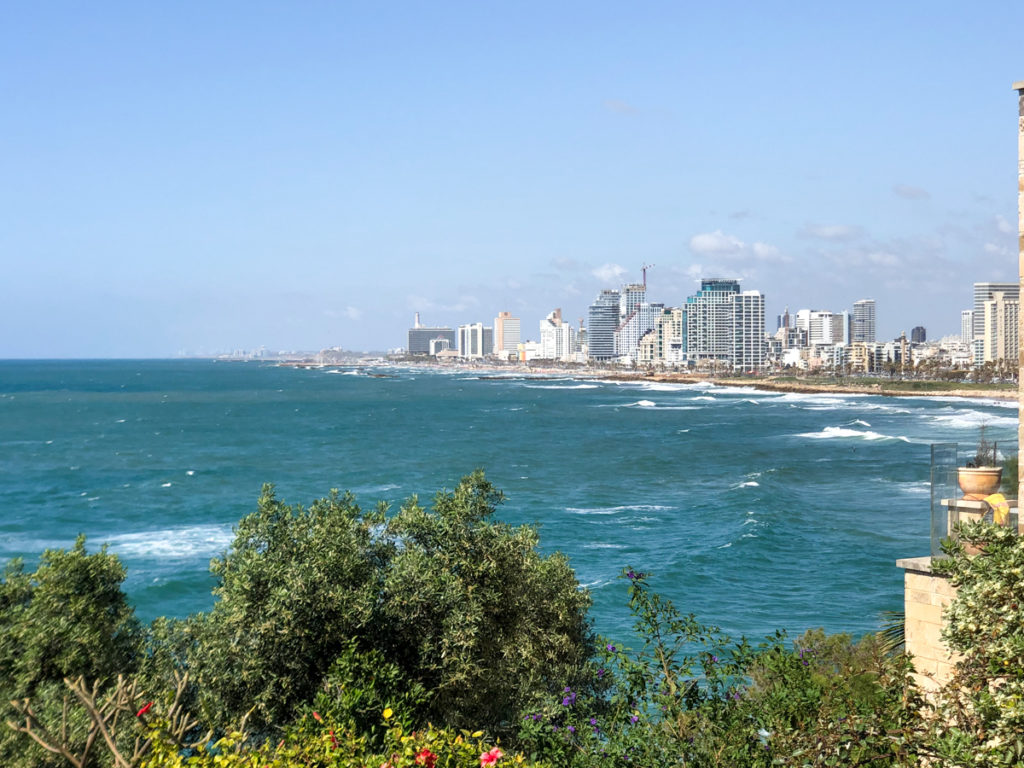

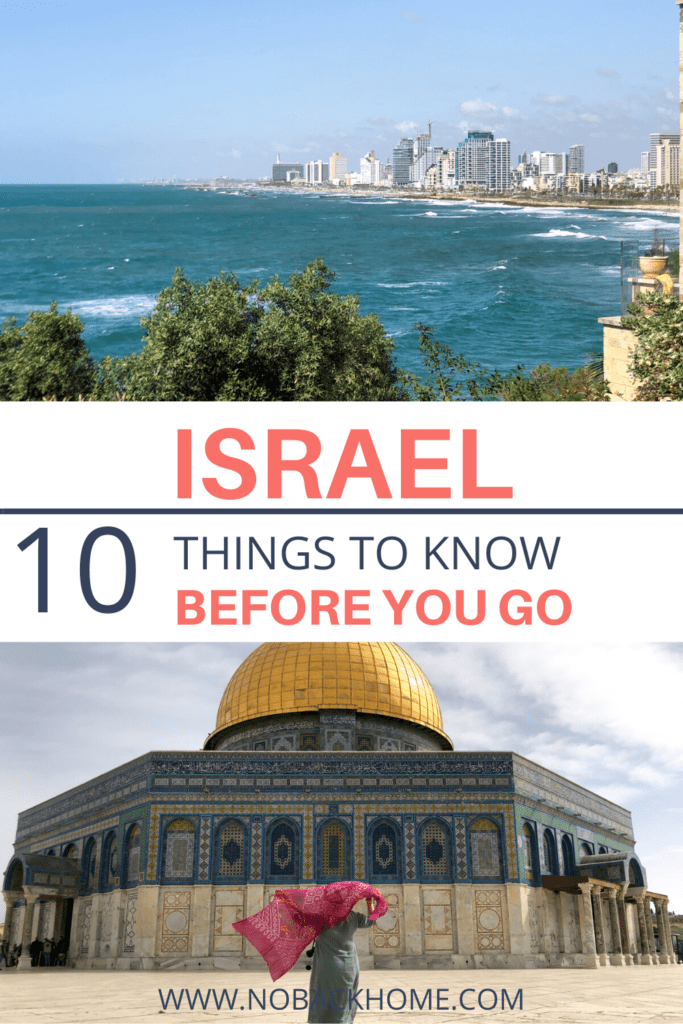
Nice post but surprised you made a basically political comment about how Palestinians live compared to Israelis. The Palestinian gov’t withholds the millions they get from aid, aboad, from its own people. Israel employs many, many Palestinians, who would otherwise be unemployed, due to lack of a job market that the Palestinian givt does nothing to alleviate. Many Israelis do not live “rich lives” financially.
Hi Nettie,
Thanks for the comment and feedback. You are correct, I did not word that quote right! I have edited it to reflect a more neutral point of view. I did feel from an outsider though that the discrepancies between the two sides were quite stark. It’s a complicated issue made even more complicated when you have allegiance to one side or the other. Given that, it’s difficult as an outsider to fully understand the nuances that each feel. Since I am not an authority, I keep my only slightly educated points of view to myself 🙂 but I do think it’s a really important thing to do in Israel to even begin to have some basic understanding of the struggles each face.
Thanks again for the comment!